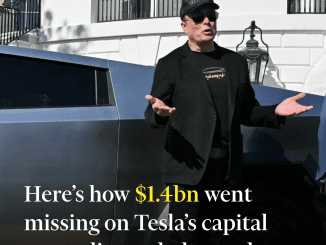Elon Musk Blocks Disney’s Pride Content on X: A Controversial Stand Against “Woke” Messaging
Elon Musk, CEO of X (formerly Twitter), has once again ignited debate with his decision to reportedly block Disney’s Pride-related content on the platform.
Musk’s reasoning stems from his belief that “woke” messaging is unsuitable for children, a stance consistent with his outspoken critiques of modern cultural and political trends.
The move has reignited discussions about the intersection of free speech, corporate responsibility, and inclusivity in children’s media.

Disney’s Pride Content and Its Purpose
Disney has long championed diversity and inclusivity through its Pride initiatives, which celebrate LGBTQ+ representation.
These efforts are particularly prominent during June—Pride Month—when the company releases themed content across its movies, TV shows, and theme parks.
The campaigns aim to foster acceptance, visibility, and support for the LGBTQ+ community. For Disney, these efforts align with their broader mission to reflect the diverse identities and stories of their global audience.
Musk’s Opposition to “Woke” Culture
Musk, however, views such initiatives through a critical lens. In a series of posts on X, he argued against incorporating social or political ideologies into children’s entertainment.
His comment, “Woke isn’t for kids,” reflects a broader cultural divide in the U.S. regarding how race, gender, and sexuality should be addressed in public life, particularly in content aimed at younger audiences.
Musk’s stance positions him as a vocal opponent of what he perceives as corporate overreach into progressive social agendas.
The Broader Cultural Debate
Musk’s decision to block or limit access to Disney’s Pride content has sparked widespread debate. Supporters of Musk argue that children’s entertainment should remain neutral, free from the influence of social or political ideologies.
They believe corporations like Disney prioritize political correctness over traditional values, potentially alienating certain audiences.

Conversely, critics of Musk’s move emphasize the importance of representation in media. They argue that Disney’s Pride initiatives help normalize LGBTQ+ identities and foster empathy among young viewers.
For children who may identify as LGBTQ+ or come from diverse family structures, seeing themselves represented in mainstream media can have a profoundly positive impact on their sense of self-worth and belonging.
Disney’s Response and Commitment to Inclusivity
In response to the controversy, Disney has reaffirmed its commitment to diversity and inclusivity. The company maintains that exposing children to a variety of perspectives and identities helps build a more empathetic and understanding society.
Disney defends its Pride content as a reflection of its values and a crucial step toward fostering a more inclusive world.
Social Media Amplifies the Divide
Musk’s actions have amplified the cultural debate surrounding “woke” content in children’s media. Social media platforms like X serve as battlegrounds for these discussions, with voices from both sides of the ideological spectrum weighing in.
Musk’s followers have praised his stance as a necessary pushback against perceived overreach by progressive corporations. Meanwhile, critics argue that Musk’s approach risks undermining efforts to create a more inclusive media landscape.
Implications for the Future
The clash between Musk and Disney highlights a larger question about the role of corporations and platforms in shaping social values. As a prominent tech leader, Musk’s actions could influence how other companies approach the integration of social causes into their content.
Similarly, Disney’s steadfast advocacy for inclusivity underscores the growing importance of representation in global media.
As this cultural conversation continues, the outcome could have far-reaching implications for the entertainment industry, social media policies, and the way inclusivity is addressed in content for children.
The debate surrounding Musk’s block of Disney’s Pride content underscores the challenges of balancing diverse perspectives in an increasingly polarized society.



